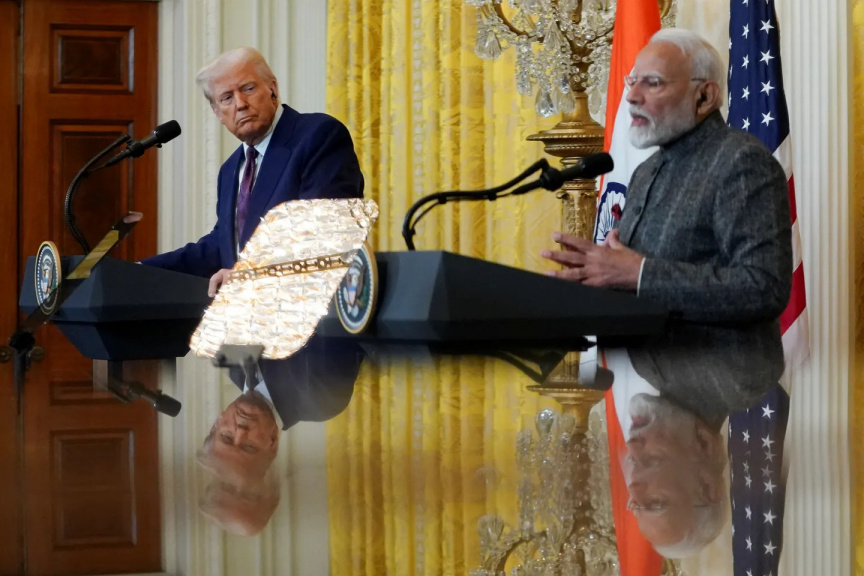
India and the US remain in talks despite disagreements over agriculture and Russian oil purchases.
India said on Monday it had signed a "significant" deal that will see the United States supply nearly 10 percent of the Asian giant's liquefied petroleum gas (LPG) imports, as it seeks to diversify its energy sources.
Relations between Washington and New Delhi plummeted in August after President Donald Trump raised tariffs on India to 50 percent, with US officials accusing the country of fuelling Russia's war in Ukraine by buying its discounted oil.
Trump has claimed that Indian Prime Minister Narendra Modi has agreed to cut India’s Russian oil imports as part of a prospective trade deal — something New Delhi has not confirmed.
India and the United States remain in talks, despite disagreements over a range of issues, including agricultural trade and the Russian oil purchases.
Minister for Petroleum and Natural Gas Hardeep Singh Puri said India had signed the one-year deal for 2.2 million tonnes per annum of LPG, sourced from the US Gulf Coast, providing "close to 10 percent" of India's annual imports of the fuel.
Puri said it was "the first structured contract of US LPG for the Indian market".
"In our endeavour to provide secure, affordable supplies of LPG to the people of India, we have been diversifying our LPG sourcing," Puri said in a statement, adding that "one of the largest and the world's fastest growing LPG market opens up to the United States".
The new LPG deal with the US comes amid broader tensions between India and Pakistan.
The South Asian rivals fought an intense conflict — after an attack in India-administered Kashmir that killed 26 people, mostly Hindu tourists — that left more than 70 people dead on both sides before Trump announced a ceasefire between India and Pakistan.
India accused Pakistan of backing the attackers. Islamabad denied the charge and called for an independent investigation.
White House claimed US President Donald Trump resolved "seven global conflicts in seven months", suggesting the India-Pakistan fighting risked nuclear escalation.
In June, Pakistan formally recommended Trump for the 2026 Nobel Peace Prize, citing his role in defusing tensions between Islamabad and New Delhi and offering to mediate Kashmir dispute between the two rivals.
Indian Prime Minister Narendra Modi, however, denies that any world leader pushed it to stop fighting Pakistan.
Impact of Russian oil restrictions
In October, Indian state-backed refiner HPCL-Mittal Energy said it halted purchases of Russian crude after Washington imposed sanctions on Moscow's two largest oil companies.
Reliance Industries, the privately owned main Indian buyer of Russian crude, has also said it is assessing the implications of the US restrictions, as well as those imposed by the European Union.
India's economy, the fifth-largest in the world, grew at its fastest pace in five quarters in the three months ending June 30, helped by higher government spending and improved consumer sentiment.
But US tariffs continue to overshadow the economy, with experts projecting that they could shave anywhere between 60 to 80 basis points off GDP growth this fiscal year, if there is no relaxation soon.
___
Source: TRT